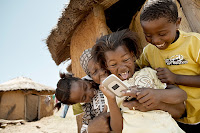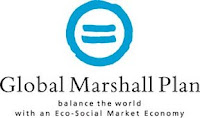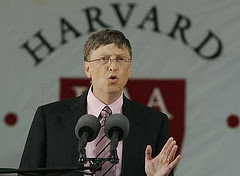 Young individuals that try the make a bit of a better place inspire a lot. Yes, we all admire the Dalai Lama, Muhammad Yunus and Nelson Mandela. Young change makers have the advantage that it is much easier to identify with them. Seeing the (com)passion of young people not accepting the old apologies why the world is unfair and why it can't be changed, is refreshing and giving hope. One of the outstanding examples is Jeremy Gilley with his Peace One Day campaign and DVD I blogged about here.
Young individuals that try the make a bit of a better place inspire a lot. Yes, we all admire the Dalai Lama, Muhammad Yunus and Nelson Mandela. Young change makers have the advantage that it is much easier to identify with them. Seeing the (com)passion of young people not accepting the old apologies why the world is unfair and why it can't be changed, is refreshing and giving hope. One of the outstanding examples is Jeremy Gilley with his Peace One Day campaign and DVD I blogged about here.The latest example I came across are two young Canadian brother, the Kielburgers. CBC featured them:
"Craig and Marc Kielburger have made headlines around the world. Craig organized students from his grade 7 class to start an awareness campaign about child labour.They also founded a business4good called Me to We Style selling organic fair trade clothing and doanting 50% of its profits to their charity. They even wrote a book 'Me to We: Finding Meaning in a Material World.'
'Free the Children' was born. Now just a year before, Craig's older brother Marc spent a year in Thailand at an AIDS hospital.
Since then, 'Free the Children' has gone from being a home-run organization to one that works around the world. They've received countless awards.. Had appearances - yes plural - on Oprah. And have an on-going partnership with her Angel Network. Conversed with Mother Theresa and the Pope. Done speaking tours with the Dali Lama, Bill Clinton and Desmond Tutu."
Check out their interview on CBC!




